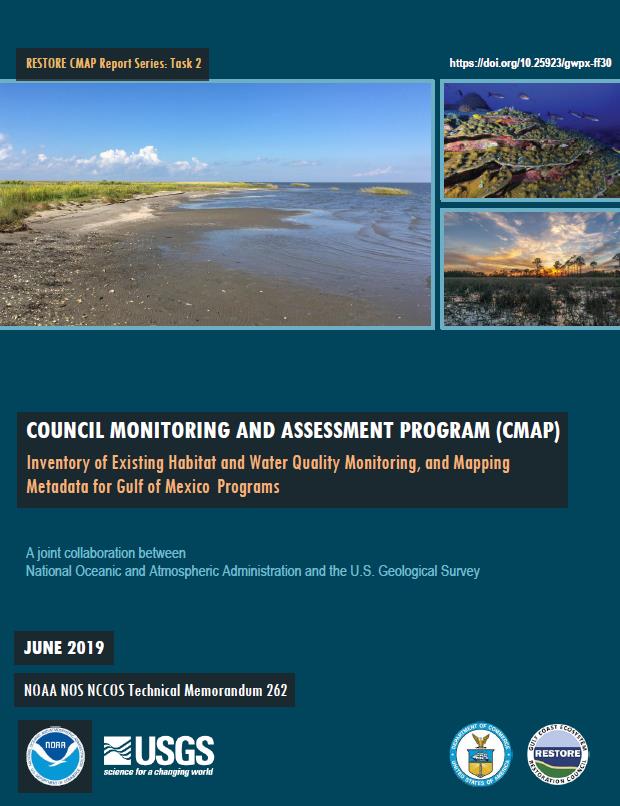
In a report published this summer, NOAA and the United States Geological Survey (USGS) identified 544 environmental monitoring and mapping programs in the Gulf of Mexico as the most relevant content for a new database designed to improve coordination of restoration and management projects in the region. The collected programs include monitoring and mapping efforts at federal, state, and local agencies; universities; private industry; and non-governmental organizations.
The report and the forthcoming database will support the work of the Gulf Coast Ecosystem Restoration Council, established under the RESTORE Act of 2012 to guide restoration activities in the Gulf of Mexico following the Deepwater Horizon oil spill in 2010. The database, which is in development, is envisioned to provide the Council with a single, definitive point of access to information needed to make ecosystem monitoring and management decisions.
The Council includes the Governors of Alabama, Florida, Louisiana, Mississippi, and Texas, as well as the Secretaries of the U.S. Departments of Agriculture, the Army, Commerce, Homeland Security, and the Interior, and the Administrator of the U.S. Environmental Protection Agency.
The Gulf ecosystem is vital to the national economy, supporting key industries such as commercial seafood, recreational fishing, tourism, and oil and gas production. Gulf waters and coasts are home to over 15,000 species of sea life. The region also includes 10 of the nation’s 15 largest ports, accounting for nearly a trillion dollars in trade each year. Much of this value depends on the health of the Gulf environment and the many benefits it provides.
For more information, contact Randy Clark, or visit the NOAA project website.
